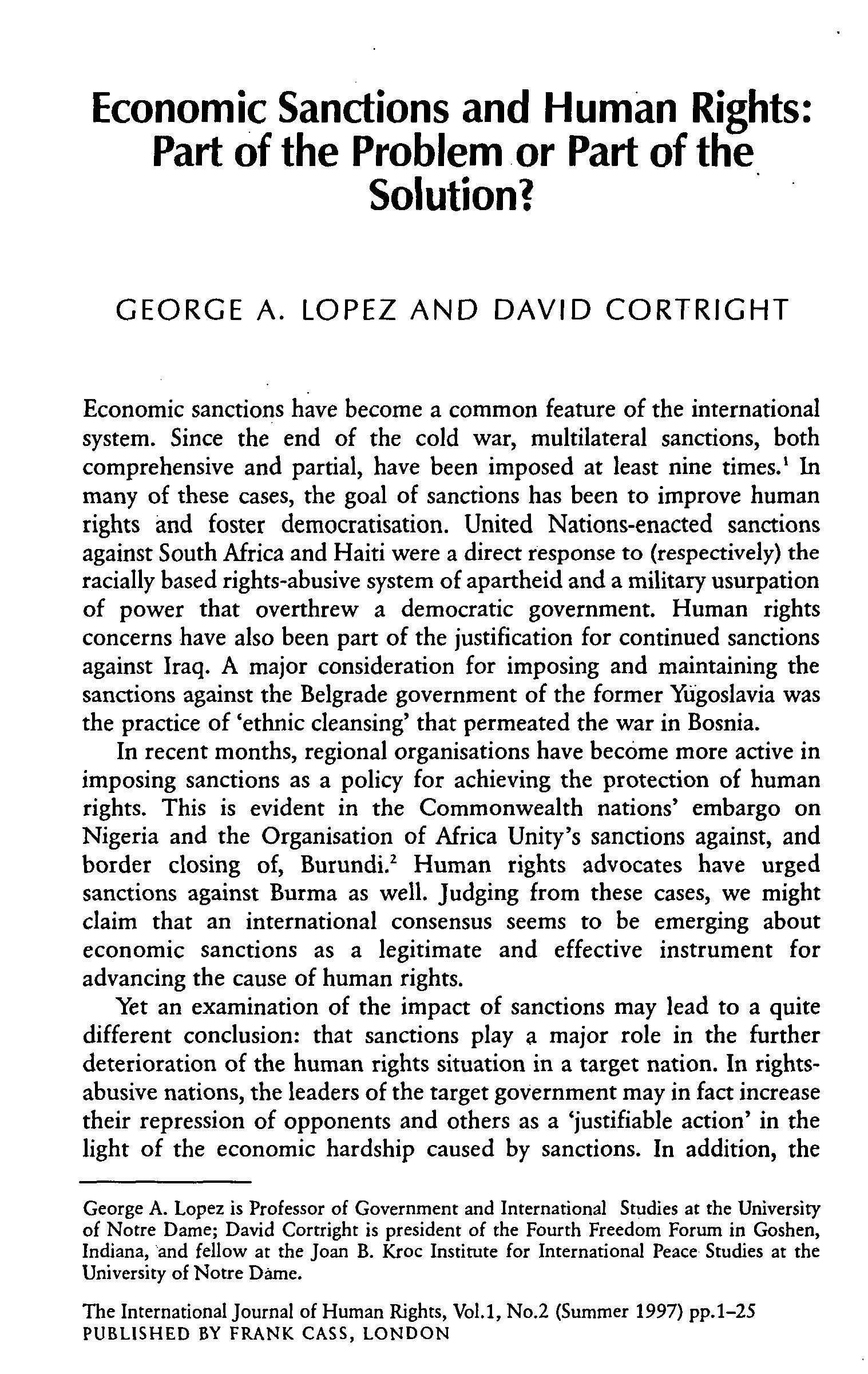Are Sanctions Just? The Problematic Case of Iraq
Journal article — Spring 1999
“Are Sanctions Just? The Problematic Case of Iraq” by David Cortright and George A. Lopez, Journal of International Affairs, vol. 52, no. 2 (Spring 1999).
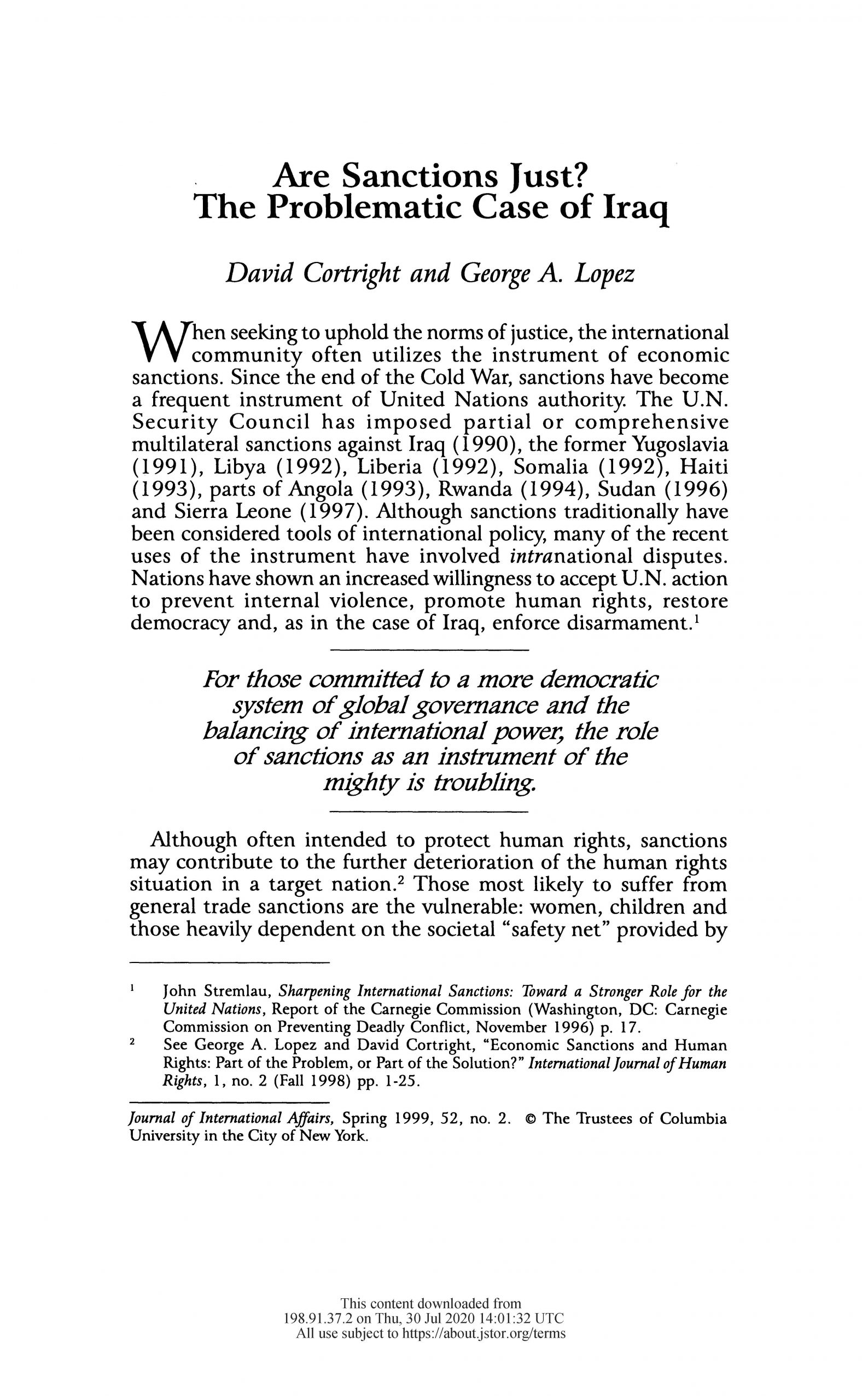
“Are Sanctions Just? The Problematic Case of Iraq” by David Cortright and George A. Lopez, Journal of International Affairs, vol. 52, no. 2 (Spring 1999).

To gain a more accurate picture of sanctions-related mortality in Iraq, the Fourth Freedom Forum and Kroc Institute commissioned public health specialist Richard Garfield of Columbia University to conduct an independent study. In this study the author evaluates the studies that have been conducted on Iraq to date and takes a fresh look at possible new methodologies for determining sanctions-related mortality, especially for children under five years of age.
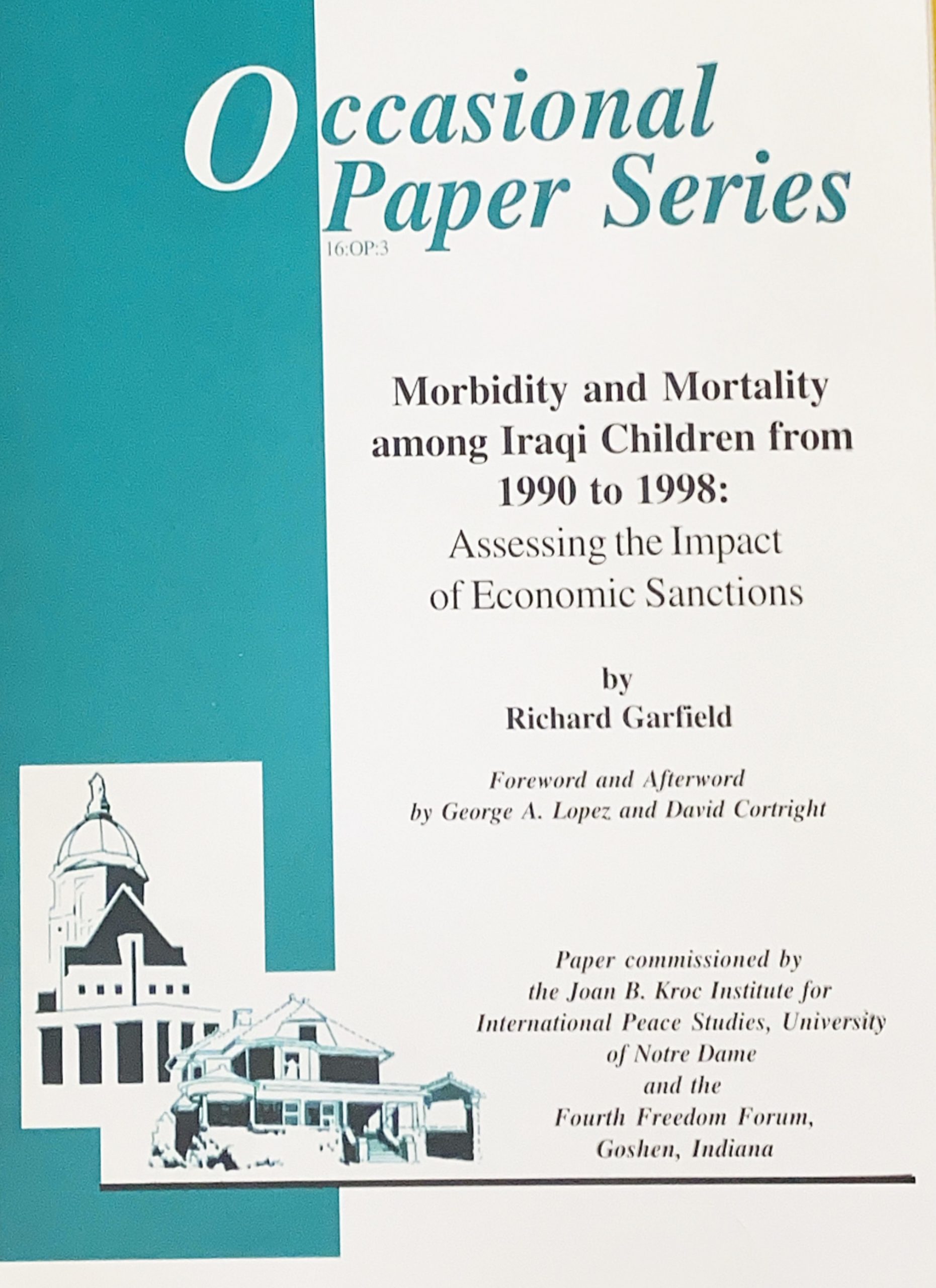
“Sanctions and Incentives as Tools of Economic Statecraft” by George A. Lopez and David Cortright in Globalization and Global Governance, edited by Raimo Väyrynen (Rowman & Littlefield, 1999).
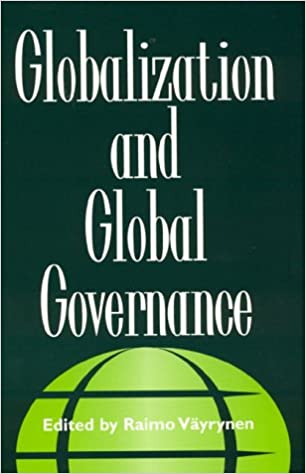
“Sanctions: Modify ’em” by David Cortright and Samina Ahmed, The Bulletin of the Atomic Scientists, (September/October 1998), pp. 22-24.

“Trouble in the Gulf: Pain and Promise” by George A. Lopez and David Cortright, The Bulletin of the Atomic Scientists, vol.54, no. 3 (May/June 1998).

“What to do about Iraq? The Moral Dilemma of Sanctions” by George A. Lopez and David Cortright, Sojourners, vol. 27, no. 2 (March/April 1998).

This report was commissioned by the United Nations Department of Humanitarian Affairs to provide a multifaceted research review of the impact of multilateral sanctions, including the development of a methodology for data gathering and assessing such impact that could be used by UN agencies, researchers and others.
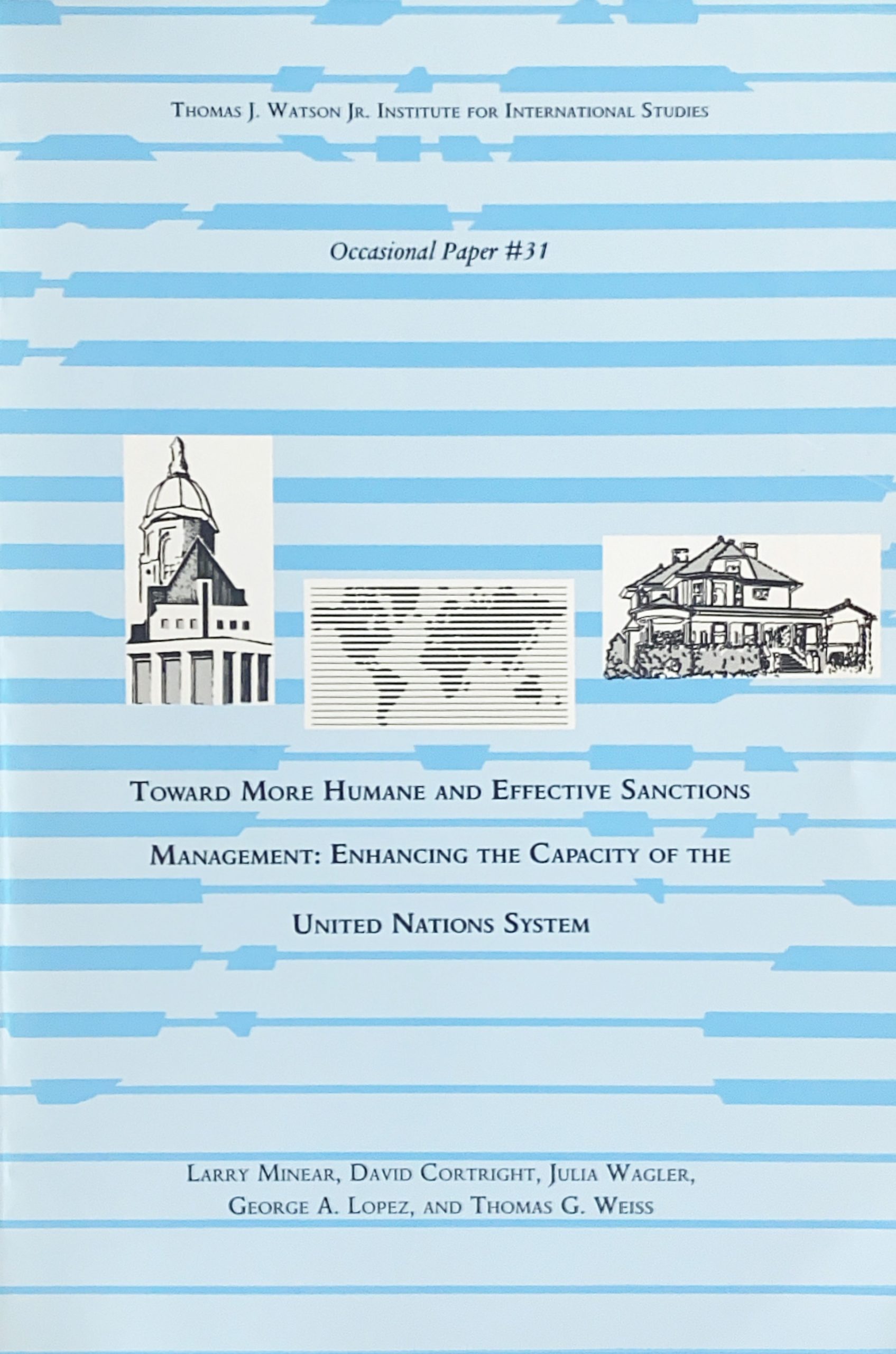
“Carrots, Sticks and Cooperation: Economic Tools of Statecraft” by David Cortright and George A. Lopez in Cases and Strategies for Preventive Action, edited by Barnett R. Rubin (Century Foundation Press, 1998) pp. 113-34.

“Financial Sanctions: The Key to a ‘Smart’ Sanctions Strategy” by George A. Lopez and David Cortright in Die Friedens-Warte, vol. 72, no. 4 (December 1997).
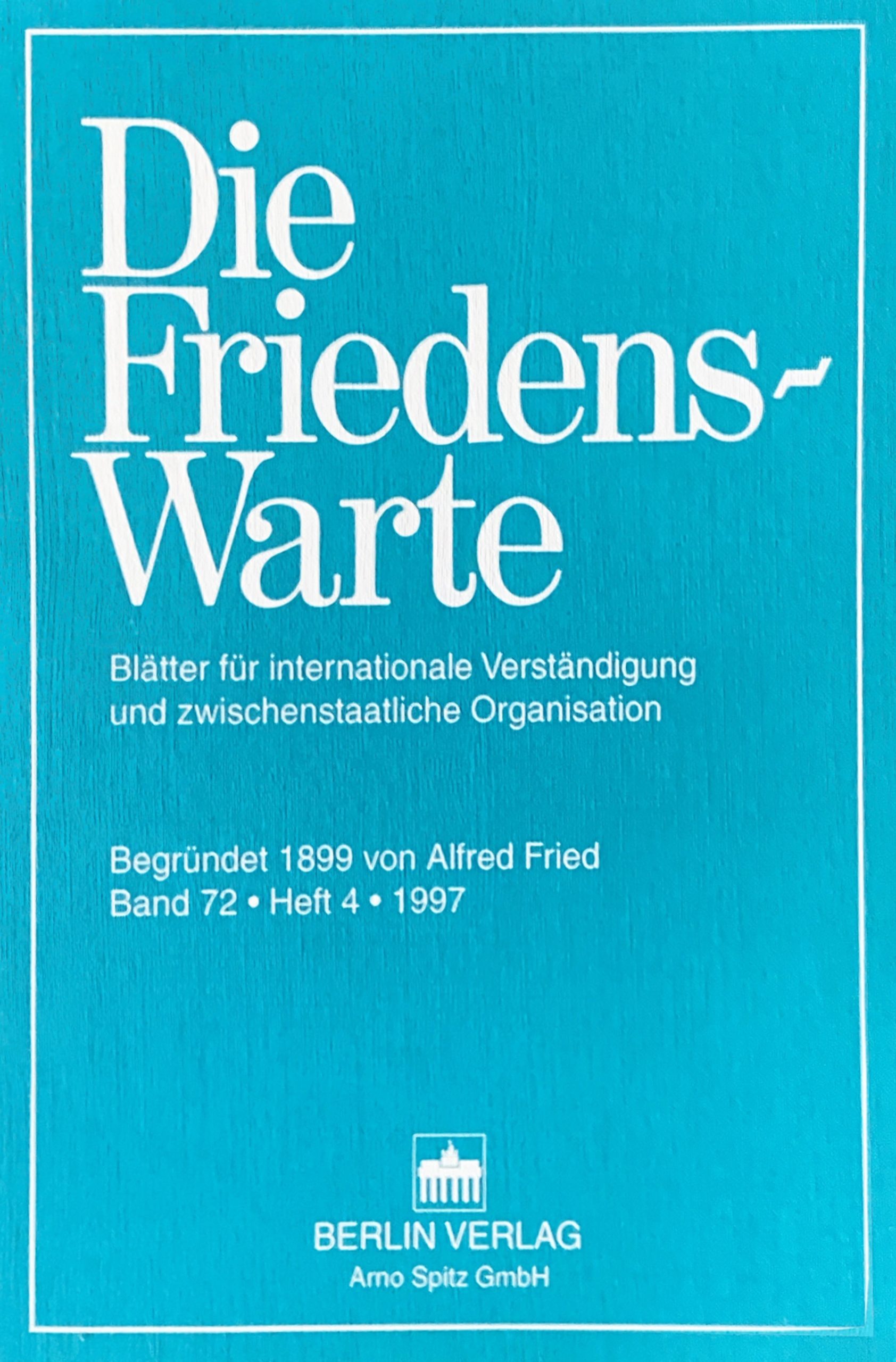
“Economic Sanctions and Human Rights: Part of the Problem or Part of the Solution?” by George A. Lopez and David Cortright, International Journal of Human Rights (London) vol. 1, no. 2 (Summer 1997).
